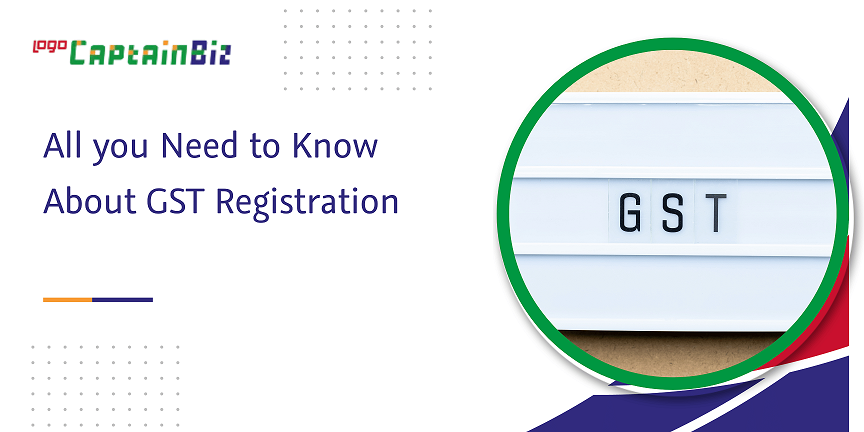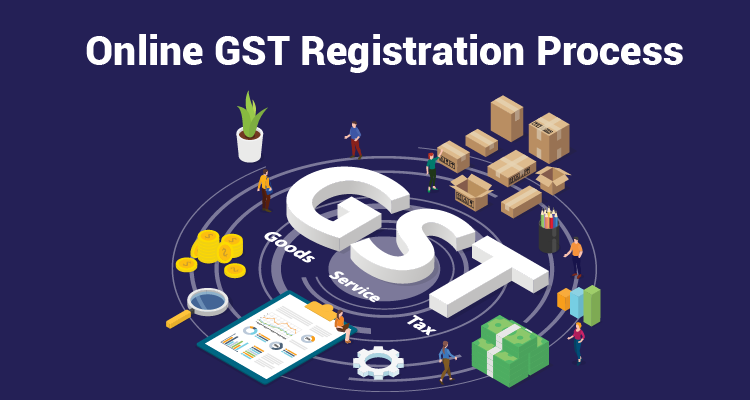Comprehensive Overview to the Best GST Registration Services in Singapore
Comprehensive Overview to the Best GST Registration Services in Singapore
Blog Article
Throughout: The Ultimate Roadmap to GST Enrollment for Organizations Seeking Financial Security
Browsing the complexities of Product and Provider Tax (GST) registration is an essential step for organizations striving for monetary security. From recognizing the essential concepts of GST to complying with post-registration guidelines, the process can appear discouraging initially glimpse. Nevertheless, damaging down the roadmap into convenient actions can streamline the registration journey for services aiming to enhance their monetary standing. Allow's discover the important parts that compose this ultimate roadmap and discover exactly how each phase adds to laying a solid structure for economic success.
Comprehending GST Fundamentals
Diving right into the fundamental principles of Product and Solutions Tax Obligation (GST) is important for getting a comprehensive understanding of its ramifications on services and the economy. Input Tax Credit History (ITC) is a substantial attribute of GST, enabling services to assert credit scores for taxes paid on inputs, lowering the total tax burden. Comprehending the essentials of GST is crucial for services to abide with tax regulations, handle their finances successfully, and contribute to the country's economic development by participating in a clear tax obligation system.
Eligibility Requirements for Registration
To register for GST, services should satisfy details eligibility standards developed by the federal government. The primary eligibility need is that any kind of service included in the supply of products or services with a yearly accumulation turn over above the threshold limit set by the authorities should register for GST. Since the present guidelines, the threshold limitation for GST registration is a yearly accumulation turnover of 40 lakhs for companies operating within a state, except for special classification states where the limit is 20 lakhs. Furthermore, specific companies are called for to sign up for GST irrespective of their turnover, such as interstate providers, laid-back taxable individuals, and companies liable to pay tax obligation under the reverse fee system. It is vital for services to thoroughly analyze their turnover and transaction kinds to identify their GST registration commitments precisely. Failure to sign up for GST when eligible can bring about fines and legal consequences, making it important for services to stick to the defined qualification requirements.
Records Required for Registration
Having satisfied the qualification standards for GST enrollment, businesses should now guarantee they have the requisite records in position to wage the registration process successfully. The records required for GST registration usually consist of evidence of business constitution, such as partnership action, enrollment certificate, or consolidation certification for various sorts of organizations. Additionally, businesses need to provide documents establishing the principal location of service, such as a rental arrangement or electricity bill. PAN card of the service, in addition to the identity and address evidence of promoters/partners/directors, are necessary for confirmation purposes. Financial institution account declarations, together with terminated cheques or a duplicate of the bank passbook, are required to confirm the economic information supplied during enrollment. Services should have digital trademarks all set for the licensed signatory. Ensuring all these records are arranged and conveniently available will certainly quicken the GST registration process, making it possible for services to follow tax laws effortlessly.
Step-by-Step Registration Process
Beginning the GST enrollment process includes a collection of organized steps to make sure a seamless and compliant enrollment for companies. The very first step is to visit the GST website and complete the enrollment form with precise information of the organization entity. Following this, the candidate gets a Temporary Recommendation Number (TRN) which is utilized to return to the application procedure if it's not finished in one go.
Next, all required files according to the list given by the GST portal need to be submitted. These records normally consist description of evidence of company enrollment, address and identification evidence of marketers, economic declarations, and business entity's PAN card.

Post-Registration Conformity Guidelines

Verdict
In verdict, organizations looking for economic security needs to comprehend the essentials of GST, meet qualification standards, gather necessary records, comply with the step-by-step enrollment procedure, and follow post-registration guidelines - Best GST registration services in Singapore. By sticking to these actions, organizations can make sure compliance with tax guidelines and preserve monetary stability over time
In addition, particular businesses are required to sign up for GST regardless of their turn over, such as interstate vendors, informal taxed persons, and companies liable to pay tax blog here obligation under the reverse charge device.Having fulfilled the eligibility criteria for GST enrollment, businesses have to currently guarantee they have the requisite papers in place to continue with the registration procedure efficiently. The papers required for GST enrollment normally include evidence of business constitution, such as collaboration action, enrollment certificate, or incorporation certification for different kinds of companies. In addition, companies require to provide papers developing the principal location of business, such as a rental contract or power expense.Beginning the GST enrollment process includes a collection of structured steps to make certain a compliant and seamless enrollment for businesses.
Report this page